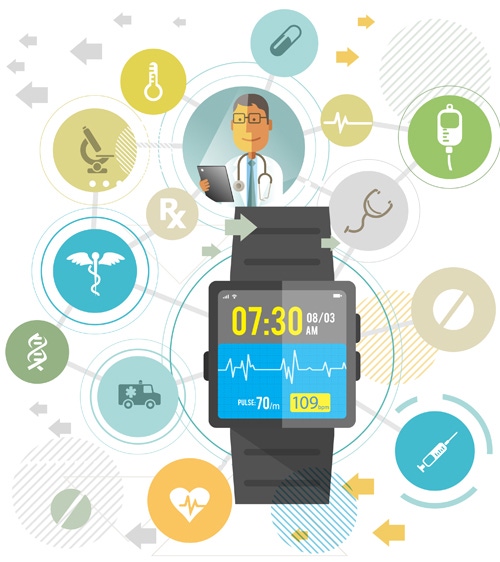Wearables Move From the "Worried Well" Consumer Market to Clinical Domain
The true value of wearable technologies lies in the regulated medical world where it can affect large-scale change, writes Wende Hutton, a West Coast venture capitalist.
August 12, 2014

Thanks, Google!
With the recent press on Google’s new frontier of the human body called the Baseline Study, we are seeing captivating images of a contact lens embedded with a glucose sensor to measure glucose in tears. Google has struck a licensing deal with Novartis to commercialize the smart contact lens technology. With the Baseline Study, Google aims to use non-identified genetic and molecular data to paint a picture of what a healthy body looks like and use that information to transform medicine from its current reactive, treatment mode to more proactive, preventive mode.
|
Wende Hutton, General Partner, Canaan Partners |
Another consumer tech giant, Apple, has now announced a new offering aimed at tracking blood glucose in its health apps. These sorts of efforts capture my attention far more than the wearables movement that include fancy, updated pedometer bracelets and watches designed to measure heart rates. It is encouraging and exciting to see investment in wearables increasingly focused on advancing clinical medicine as opposed to “quantified self-tools” for the worried well, whose users suffer from wearable tech-fatigue, and may end up abandoning their devices a few months later.
Wandering in a non-regulated world
Much of the initial innovation in wearables seemed to have been derived from a desire by clever engineers to provide a self-directed ability to measure exercise in number of daily footsteps, monitor vital signs or provide proxies for self-improvement in mood and productivity by measuring breath rates, posture or sleep.
A repeated goal of many tech entrepreneurs innovating in the wearables space has been to steer clear of the FDA. For a died-in-the-wool medtech investor, this translates to an inability to make any clinical claims surrounding utility. It makes me ponder, “What’s the point of wandering around in a non-regulated world?”
Mind you, I’m not dissing the runner who loves to clock their mileage daily with a FitBit or use a weight loss tool for counting calories. But are consumer applications like these really going to bring about needed changes in large populations of the less healthy – the 2 of 3 adults who are overweight; smokers who can’t find a way to quit their habit or patients with uncontrolled diabetes?
Pioneers in a regulated world
Increasingly, the mantra seems to have changed. No longer is it practical to avoid the FDA. Proteus Digital Health spent years educating the FDA on its revolutionary approach to medication compliance and finally gained approval of a sensor in 2012 - a tiny silicon chip (powered by the body itself) - that swallowed alongside medication can signal when the pill is ingested to a wearable patient patch. This opens up a whole new world of medication compliance and tracking that could alter the care pathways for patients with serious mental health disorders and congestive heart failure. The current version, which received the FDA approval requires the Proteus pill to be taken alongside the regular medication but future generations will directly incorporate the chip into the pharmaceutical and will require a separate approval.
Canaan’s wearables strategy took us down the path of a regulated device that could attack one of the biggest public health needs of our time – smoking cessation. We recently funded Chrono Therapeutics, a “wearable” smart drug delivery device for the administration of timed nicotine replacement therapy (NRT) to provide a disruptive smoking cessation tool. Studies have proven that pulsed therapy timed to quell cravings is a more effective way to get smokers through the difficulties of kicking their addiction to nicotine than constant administration of NRT through patches. The device pairs with a mobile application for behavioral support and encouragement and can provide much needed data on how to increase the success rates for smokers trying to quit. The company will have to gain FDA approval, which we like because it provides a barrier to entry and insures that the company can make claims surrounding NRT.
I foresee the best of wearables to be a convergence of tech and medical devices, not avoidance of the FDA. So, thanks, Google, for launching the Google Baseline study with the intent of truly advancing clinical medicine and helping to inspire a new crop of entrepreneurs designing and developing wearables.
-- By Wende Hutton, General Partner, Canaan Partners. Hutton has helped to bring over a dozen medical devices and drugs to market, and currently sits on the boards of Aldea Pharmaceuticals, Butterfly Health, Chimerix (CMRX), Dermira, Labrys Biologics, ReVision Optics, Theraclone Sciences and Transcend Medical
You May Also Like


.png?width=300&auto=webp&quality=80&disable=upscale)
